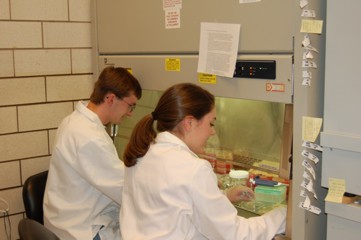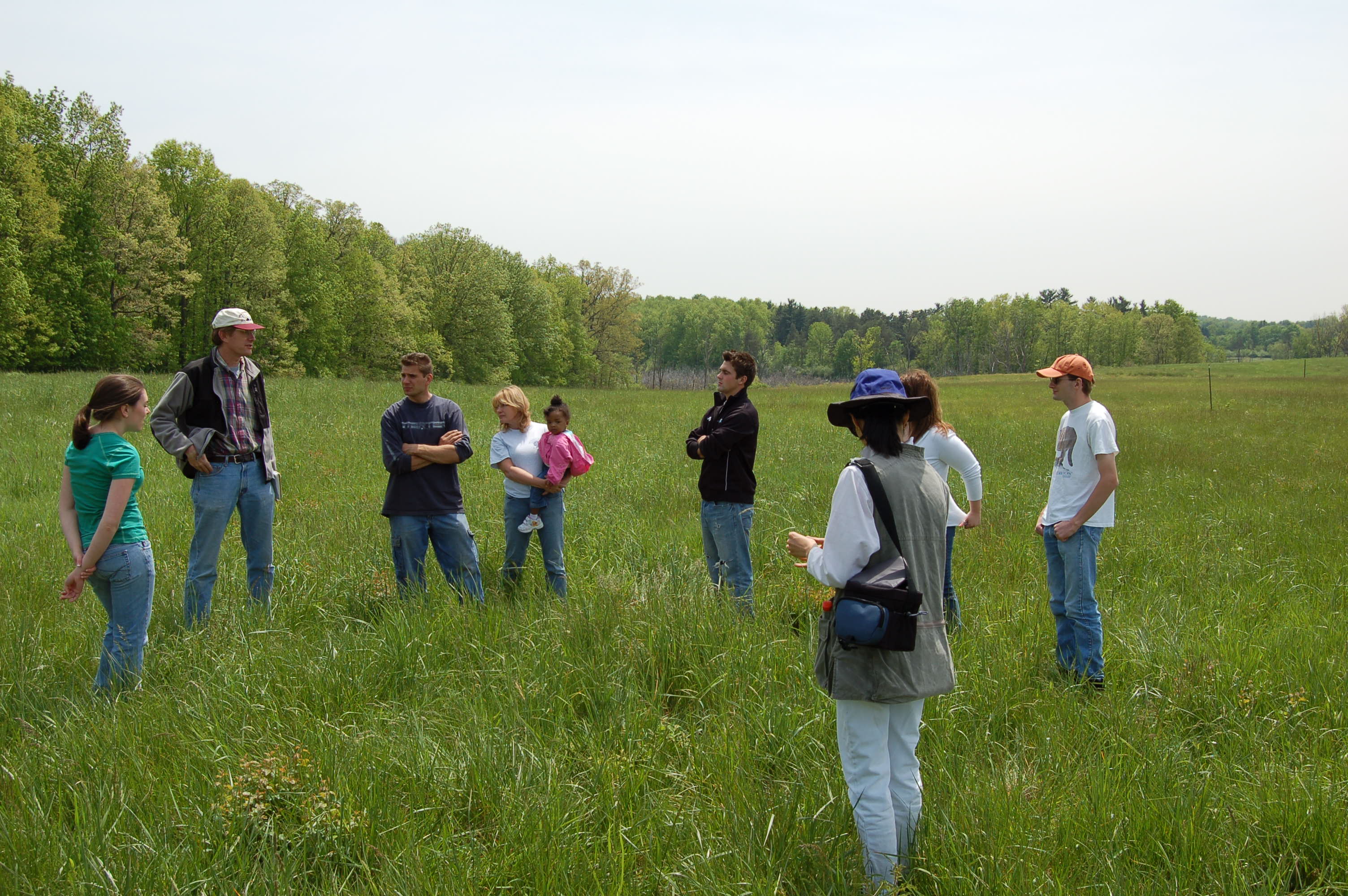Tiered Mentoring
This year's application deadline is Sunday, September 22, 2024 at 11:59pm.
Introduction

The Tiered Mentoring Program at the University of Akron connects undergraduate students with research, internship, and clinical shadowing experiences with our local community partners that build confidence and foster belonging in biology and biomedical fields. Designed for students early in their academic journey, this program pairs each student with a faculty mentor, graduate student, and experienced peer. In year one, students are mentees gaining hands-on experience; in year two, they become mentors to incoming participants. This cycle of guided learning, collaboration, and leadership helps students persist in their degrees, explore career pathways, and build strong letters of recommendation for graduate and professional schools.
2025 Tiered Mentoring Projects coming soon!

How to Participate in the Tiered Mentoring Program
The first thing to do for an interested participant in the T.M. Program is to review the above list outlining the various research projects you could participate in. It would be wise to link to the professor's (on campus research) web page to get more information on the professor and his/her research program (click on the names of each professor at the bottom of the above research pages to link to their web page). You might also wish to email the professor before you make your choice of which research project you would like to work with (email addresses are on each professor's web page).
Students are encouraged to sign up for some number of independent research credits (credits depend on time commitments, and commonly range from 1-4 total credits) in the biology department and then do their research project over their time in the lab. Time commitments for research are negotiated with the research advisor and are quite flexible in most situations. The UA research opportunity will come with a $500 supply budget for student research (made possible by a gracious yearly gift from Norbert Thompson and a gift from Carolyn Olive in memory of her late husband John Olive, a previous professor in the Department of Biology), allowing the student to pursue a range of research topics that may not usually be available to them because of cost. [Please note - the $500 budget assumes a minimum of a 2-3 month time commitment; projects that are shorter than this will be allocated a concomitantly smaller supply budget.]
After identifying the research groups you are interested in, you need to fill out the application form. On that form, you can identify up to 6 research projects you would be interested in working on. The application form requires you to input some basic information about yourself (e.g., GPA, awards/scholarships, work experience, etc.) and asks that you write a brief outline of why you are interested in working with the research group(s) you have identified. This may be the only information that the research mentors have to decide whether they will accept you into their lab or not, so writing a well thought out application will greatly increase your odds of being chosen to be in this program! If the professor or graduate student needs more information from you, they may contact you personally (so make sure you give them an email address that you check regularly!).
The deadline for applying is Sunday, September 22, 2024 at 11:59pm. Once all the applications have been received, they will be circulated among the various professors who will determine whether an applicant is appropriate for a particular research group. The faculty will rank their acceptable applicants and then the students will be offered a position in mid-October. Each student will negotiate with each professor/research manager the starting date, the number of hours per week, and the date range for their particular research involvement.
If you have any further questions about this program, please contact Dr. Jordan Renna.
Tiered Mentoring Project Archive
To see previous Tiered Mentoring research opportunities, click here.
